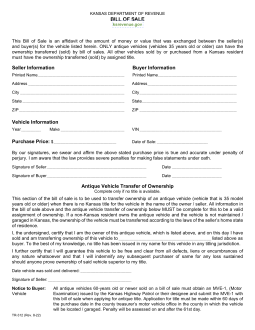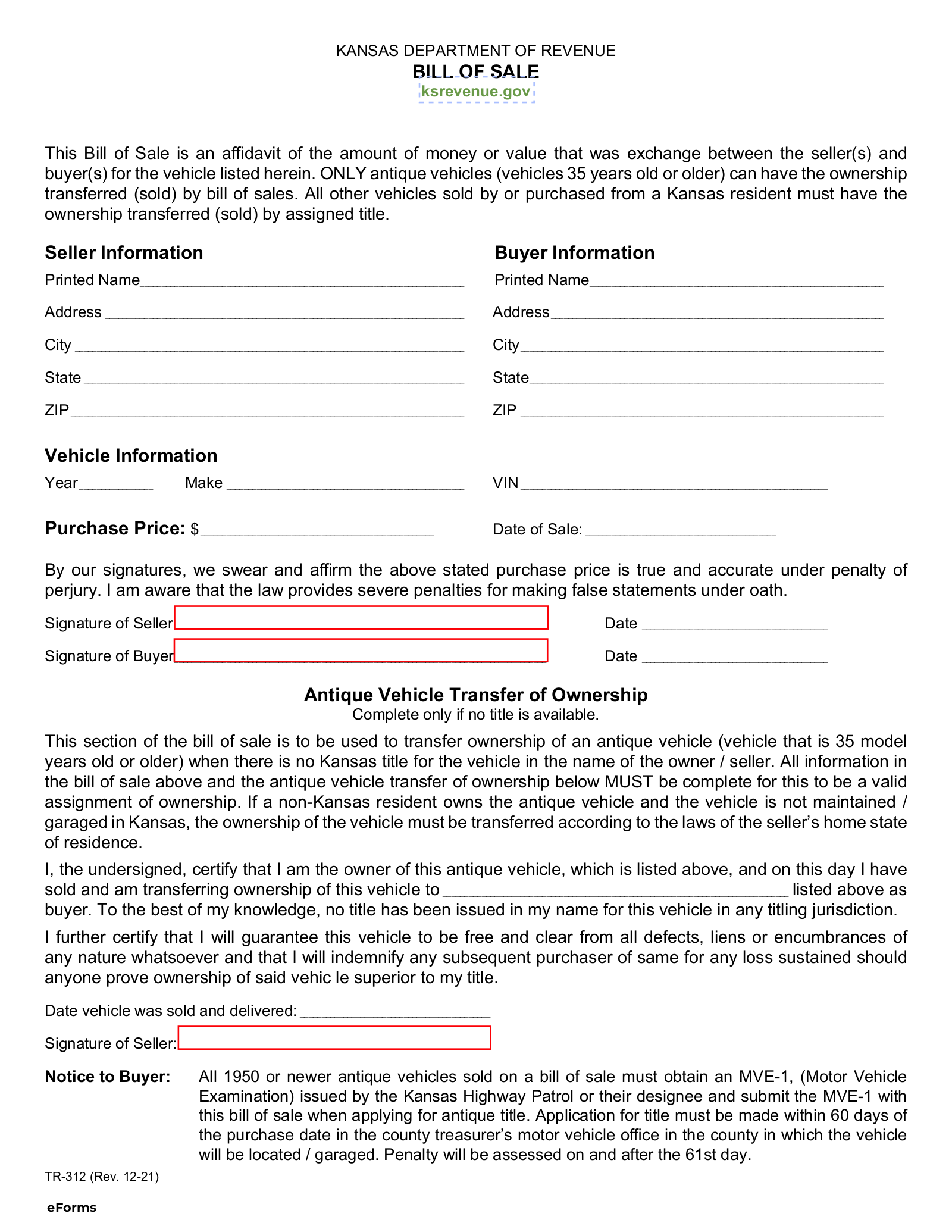Updated September 05, 2023
A Kansas bill of sale allows for a buyer and seller to record a transaction of personal property and for it to be registered in the state. It includes the parties’ names, sales price, date of sale, and any other purchase terms. Once the sale is complete, the bill of sale should be signed by both parties.
Forms (4)
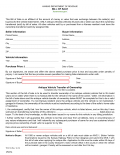 Vehicle Bill of Sale (Form TR-312) – Used to provide evidence that a vehicle has been legally purchased and its ownership has changed. This document will be needed in the registration process. Vehicle Bill of Sale (Form TR-312) – Used to provide evidence that a vehicle has been legally purchased and its ownership has changed. This document will be needed in the registration process.
Download: PDF |
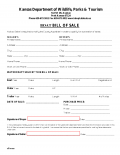 Boat Bill of Sale – For the use of proving the legal sale of a vessel. Boat Bill of Sale – For the use of proving the legal sale of a vessel.
Download: PDF |
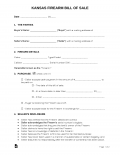 Firearm Bill of Sale – For the legal purchase and change of ownership of a firearm. Firearm Bill of Sale – For the legal purchase and change of ownership of a firearm.
Download: PDF, MS Word, OpenDocument |
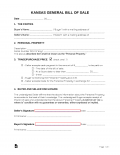 General Bill of Sale – To conduct the sale of personal property such as equipment, furniture, etc. General Bill of Sale – To conduct the sale of personal property such as equipment, furniture, etc.
Download: PDF, MS Word, OpenDocument |
Vehicle Registration Forms
- Bill of Sale;
- Odometer Disclosure Statement (Form TR-59);
- Signed Certificate of Title;
- Motor Vehicle Examination Certificate (Form MVE-1), if purchased from a different state or has an out-of-state title;
- Valid Kansas Driver’s License
- Completed Kansas Title and Registration Manual Application;
- Registration Fees (rates may vary);[1]
- Proof of Insurance, including:
- Name of the insurance company;
- Policy number;
- Owner’s Namer;
- Effective and Expiration Date of Coverage;
- Year, Make, and VIN of the vehicle;
- Motor Vehicle Power of Attorney, if an agent will represent the vehicle owner in any matters.
Boat Registration Forms
- Bill of Sale;
- Completed Application for Certificate of Number Kansas Boating Act;
- Sales Tax Receipt or Form ST-8B Tax Exempt Form (only for vessels purchased at a dealership);
- Photo or Pencil Tracing of Hull Identification Number (for vessels manufactured after 1972);
- Valid Kansas Driver’s License or Proof of Identity; and
- Registration Fees ($42.50 for all vessels).[2]

